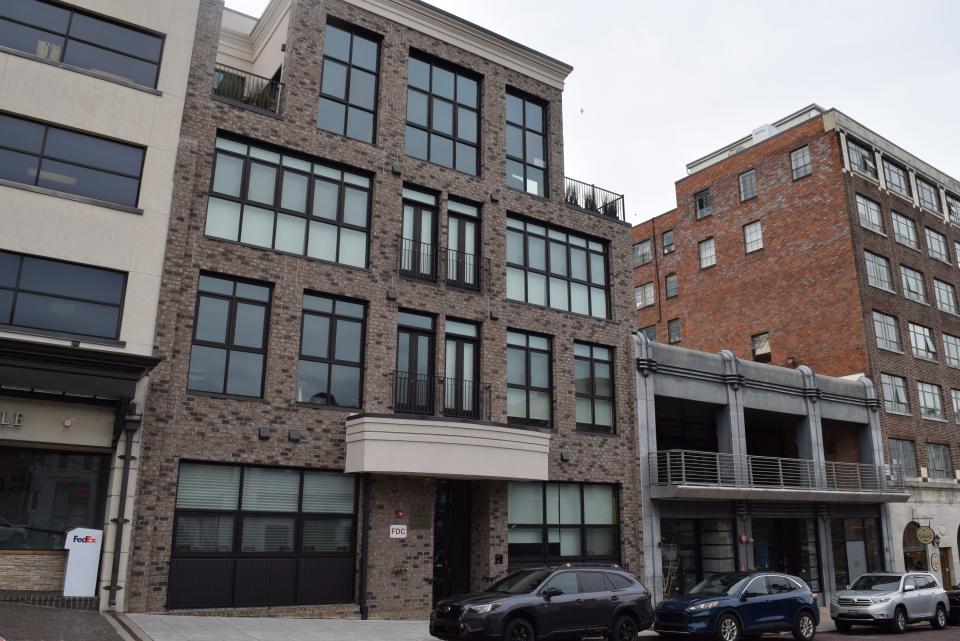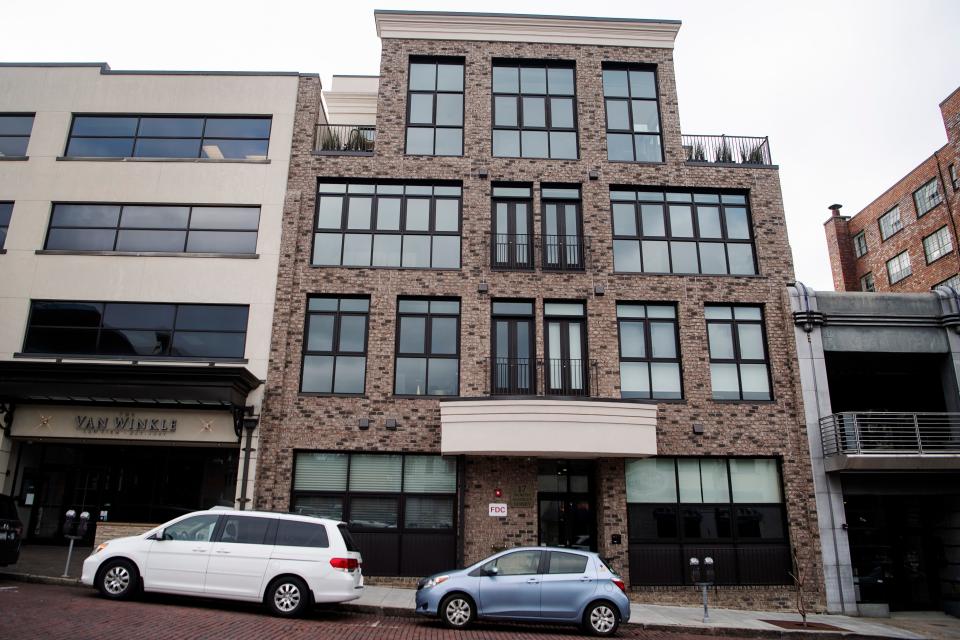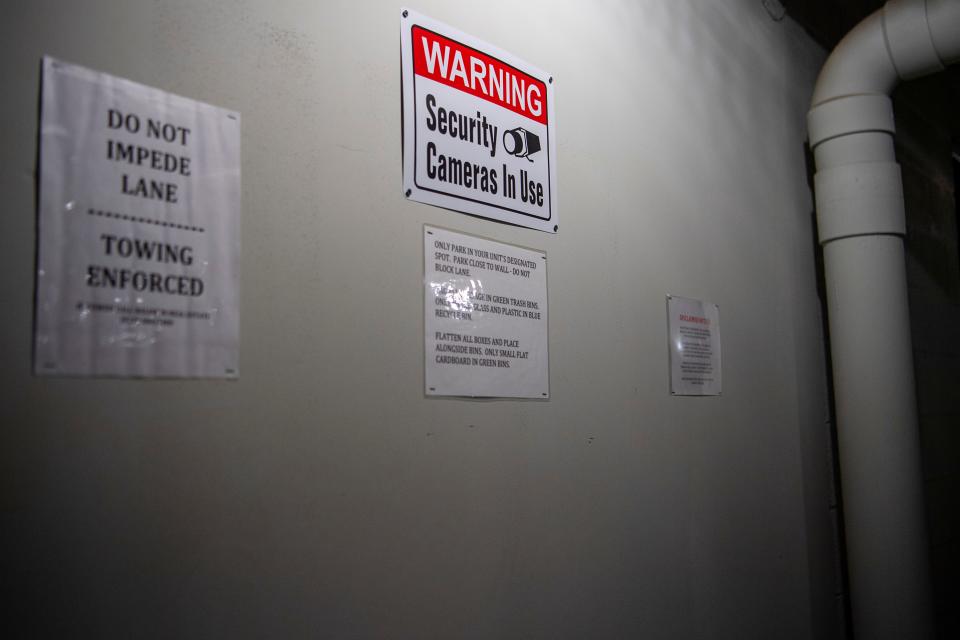ASHEVILLE – The developer who proposed to convert unpermitted short-term rental units to a hotel has filed an appeal to the city of Asheville Board of Adjustment, seeking to overturn the city’s legal determination that the conversion would go against North Carolina development regulation, expanding the now multifaceted legal battle over the building’s status in downtown.
On behalf of developer Brett Krueger, Allen Stahl Kilbourne land-use attorney Jesse Swords filed an appeal to the city’s decision on the hotel application on July 24. The appeal claims the city’s legal concerns over the hotel conversion at 17 N. Market St. are “misplaced.”

In the filing, Swords wrote that 17 N. Market St.’s “common elements” — like doors, hallways and common spaces — of the building are not defined as “lodging” in the city’s Unified Development Ordinance and are the subject of easements in the building HOA Covenants, which would allow “tenants, guests, invitees and customers” to travel through the condominium building without needing to convert the building’s common elements to a hotel.
Because the application seeks to only convert specific rooms in the building to “hotel” status, the easements allow for guests to travel through the building without needing to change its zoning, and so the application should continue, Swords wrote.
The idea of single units being converted to “hotel” status without affidavits being submitted for the common elements of the property, which are likely to be used by hotel guests, has seen push-back from the city and full-time residents.
In April, city of Asheville Senior Assistant Attorney Eric Edgerton sent an email to Swords stating that the city’s legal finding on the application was that it was “incomplete” as it did not have the permission of all homeowners in the building who have ownership rights to the common elements.
Edgerton wrote the city legal department believed that allowing the application to move forward would go against its interpretation of local planning and development regulations outlined in N.C. General Statute 160(D), which requires landowners “expressly authorize someone else to submit a development application for a property they own.” Under the building’s HOA covenants, the common elements are owned in the undivided whole by unit owners in the building, but physical adjustments and additions are managed by the HOA, according to the building’s HOA covenants filed with the Buncombe County Register of Deeds.
“As I understand it, any change of use such that portions of 17 North Market will function as a small hotel will require that the common elements be used by hotel guests,” Edgerton wrote April 18.
“Every unit owner in the building would accordingly need to sign off on a change of use application, insofar as they all have ownership interests in the common elements,” Edgerton continued.
On behalf of the city legal team, spokesperson Kim Miller said Aug. 21 that the city does not comment on ongoing legal matters and noted that the Board of Adjustment hearing on the appeal originally scheduled for Aug. 26 has been moved to Sept. 23.

In June, the city legal department told the Citizen Times that hotel “permits of this nature require consent from all of a building’s owners, which is normally evidenced by an affidavit. The City does not plan to change this practice.”
In addition to the appeal of the city’s hotel application decision, other appeals to the Board of Adjustment were filed by three of the short-term rental unit owners. The appeals were to find notices of violation for unpermitted short-term rental activity dated reported on June 5 this year as void.
Court date set in 17 N. Market St. case
As the city restricted new short-term rentals from opening in the Central Business District zoning area in 2018, only units with “grandfathered” STR permits are allowed to rent within the CBD. In 17 N. Market St., none of the condos have grandfathered zoning permits, and yet had been listing on short-term rental sites, like Airbnb or Vrbo, for years, the Citizen Times reported in February.
When the city filed violations in November 2023, the short-term rental owners moved to file an application to convert just those units to a “hotel.” Frustrated full-time residents in the building, who were not told of the hotel plan before it was filed with the city, responded to the hotel application with a March lawsuit seeking to find that the application is not legal as it would go against homeowner’s association covenants.

The case, which has seen a motion to dismiss, counterclaims from STR unit owners and a full response to those motions by the plaintiffs, has its first hearing set for the the Buncombe County Court at 12 p.m. on Sept. 23 — the same day as the Board of Adjustment hearing on the appeals.
In July, the North Carolina Real Estate Commission warned against the practice of renting without the proper zoning requirements and the Citizen Times reported that a prominent Asheville realtor, who serves as vice chair of the Planning and Zoning Commission, had been the broker-in-charge of the 17 N Market St. units.
The NCREC opened a case for “further investigation” on July 30 into that broker and another broker who worked to sell the units, according to a NCREC letter obtained by the Citizen Times.
More: Harvest Records owners celebrate spinning tunes for 20 years in West Asheville
More: Western NC police teacher cleared of wrongdoing after students hurt, program shut down
Will Hofmann is the Growth and Development Reporter for the Asheville Citizen Times, part of the USA Today Network. Got a tip? Email him at WHofmann@citizentimes.com. Please help support this type of journalism with a subscription to the Citizen Times.
This article originally appeared on Asheville Citizen Times: Former illegal Airbnb condos to a hotel? Developer appeals city board
